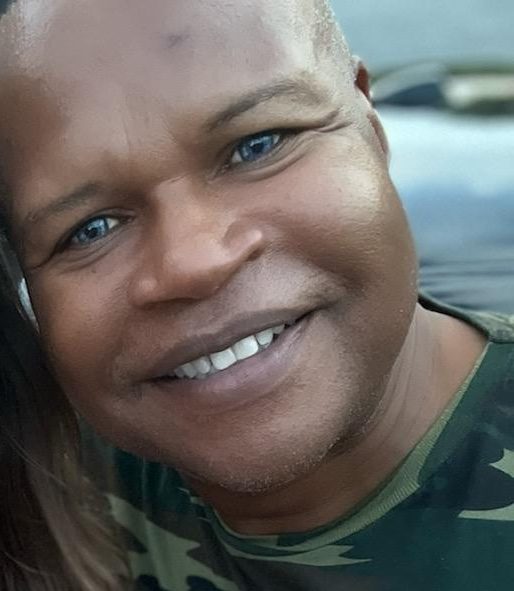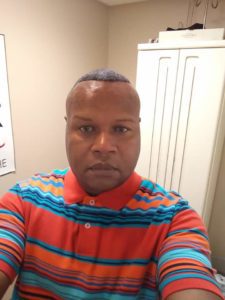
Finding Integrity: A Sobriety Story
Leonard, a Reco Intensive alumni who recently celebrated achieving his first year of sobriety, was only 14 when he had his first drink.
“Because my sister’s friends were always over partying, so I had some wine and stuff like that,” he explains.
“And then when I got to be 21, it was legal, I started drinking even more.”
His drinking only increased when the homosexual Leonard discovered gay bars, and the hard-partying gay subculture.
“That was actually a lifestyle, not something that you did behind closed doors, so that started a roller coaster,” he said.
 But Leonard’s roller coaster was about to get even bumpier. At 32, a friend introduced him to cocaine—which he loved immediately.
But Leonard’s roller coaster was about to get even bumpier. At 32, a friend introduced him to cocaine—which he loved immediately.
“And then it went from loving it to getting very out of control,” he described.
In retrospect, Leonard realized that he may have been uniquely vulnerable to addiction because of a need for validation caused by growing up without a father figure after his parents divorced when he was in the third grade, after which point he was only raised by his mother.
“I think the addiction made me feel good, and complete, and it also made me promiscuous, which led to having sex with other men—you know, getting them to validate me.”
However, it only filled this void for Leonard at the expense of his peace of mind, quality of life, and even career.
“You know, I was functioning, or at least I thought I was functioning,” he reflected.
“But it got to the point where I was functioning and then I was not functioning because I was calling off work or making up excuses why I couldn’t be at work cause I’d still be doing lines of coke in the morning…. So, it was unmanageable.”
This culminated in the loss of the job he’d held for 25 years, as an inventory specialist in a hospital. Perhaps this should’ve been a wake up call, but Leonard simply found a new job, and then spent 17 more years working while juggling addiction before he suffered two strokes six months apart after experimenting with internet pharmaceuticals. After that, things finally came to a head when his niece confronted him after his disengagement during a family Zoom call seemed to confirm their suspicions that he was using again.
“I tried to lie my way out of it, and was sitting there for a while after I got off the phone with her just suffering. You know, with myself and this addiction,” he said.
So, he concurred, and started calling treatment centers. Initially, he was directed to a facility in Pennsylvania, but negotiated his way to a placement in sunnier Stuart, Florida, instead. He was then moved to its Pompano Beach location before being sent to Reco. And though Leonard credits Reco’s supportive environment for much of his later success, his road to recovery wasn’t quite smooth sailing from there, as he embarked on a five month relapse after spending six months in their treatment program.
But the connections he had developed with his Reco family are what, in the end, gave him the strength to turn away from this hurtle towards rock bottom and pull himself back toward his better angels.
“I made a phone call to Matt Martin and asked for him to pray for me. And he said, I can do one better than that, I can get you into detox today . . . so I gave in. I called my family, I tell them I’m going back into treatment, and I went back into treatment,” he describes.
And, this time, that treatment stuck. After detox, Leonard moved into a halfway house and re-enrolled at Reco, finding a second sponsor who helped him to work a “good and honest program” through the twelve steps after a first sponsor relapsed.
And one “aha” moment that he describes as pivotal is the moment that he was able to break through the barriers of his ego and realize that he did in fact need help.
“I had a huge problem with acceptance,” he describes.
“I remember being in a group one morning and the topic was denial. And we had taken a break, and when we came back from break, I said oh, I get it, I know what’s going on with me, I’m in denial that I actually have a problem. So, from that day on things just started to work out for me, once I admitted that I really actually had an issue. ”
Rediscovering his relationship with God has been another important part of Leonard’s sobriety journey. When he was younger, he turned away from the church largely because of other members’ biased beliefs about homosexuality, which he no longer accepts as true.
“I think that’s when I kind of lost myself—when I stopped believing in my higher power,” he reflected.
But after Leonard’s sponsor helped him to “put his hand into God’s hand,” he started praying again, and now starts every morning with one.
“Asking him to take my character defects away and let his will be done, not mine. I have to surrender daily, in order to keep this going for myself, so I’m very connected with my higher power.”
Leonard also keeps to a variety of other practices that help keep him grounded and balanced, like meditation, reading, daily reflections, and walking three miles a day on the treadmill at his health club.
A lot of Leonard’s positive attitude also comes from a simple effort to look on the bright side.
“I’m in a great place, I’m happy,” he describes.
Though he has faced significant obstacles, such as the impediments imposed by his strokes, he has learned to always look at his glass as half full as opposed to half empty.
“Other people in recovery that I’ve noticed like to hang onto their trauma. And a lot of stuff has happened to me, but I don’t hold onto it. It’s what has made me who I am,” he says.
And he, like many others who have made their way to successful recoveries using the steps’ wisdom, has found that paying his experiences forward has been key to keeping himself motivated. When Leonard’s sponsor suggested that he do so by chairing H and I meetings, he was reluctant at first.
“And then he said how free do I want to be, so I wanted to be free, so I did all that chairing,” Leonard explained.
After finding that he loved it, he soon moved on to chairing Reco meetings as well. From there, along with working his own program, he would “try to do everything right helping others. I drive people to meetings, I take people to work, because I have a car down here,” he said.
“Because I have my integrity back, I get up in the morning, and I look forward to doing the right thing.”
And since finding it, going back to his addiction feels unimaginable.
“It was a very dark time, and it just doesn’t feel right,” he describes.
Along with staying on track with his sobriety and chairing, Leonard would love to work in recovery someday, and to own his own halfway house as well. His goal is simply to help other addicts, on an even greater scale than he already does.
“To give what was given to me freely,” he describes.
For now, though, Leonard has been enjoying spending time with his family, who he describes as very supportive and who he now enjoys improved relationships with since finding recovery.
“My younger brother actually came down last year, on his birthday and surprised me and brought my mother with him, which was awesome…My sister and her husband came down here to Miami and spent their honeymoon down here, and it was fabulous.”
He’s also proud to have recently received his one year chip from Reco, and of the fact that he is soon to become assistant manager at the halfway house he belongs to, Faith Over Fear, which he has no intentions of leaving for the foreseeable future.
 “Because I like the journey that I’m on,” he describes. “So, I’m in a good place.”
“Because I like the journey that I’m on,” he describes. “So, I’m in a good place.”
Compared to the place he started, it is a very good place indeed—and it’s a place he never would’ve found without help from Reco Intensive.
“The housing was amazing, the staff was amazing, and still is amazing. And Reco was part of why I’m sober today. Because of the support from Reco, from Matt Martin, from Colby, from all of them, from Uguy, Tanya, Techs, Matt Hoffman, Brandon, Christine. I mean everybody was very supportive there at Reco. Love Reco, I love Reco!”
Still, the final congratulations, as always, should go to Leonard for his hard work, inspiring dedication, and charitable spirit. We can’t wait to see what his future holds!
If you or someone you love is still trying to regain their own integrity after battling with drug addiction, Reco Intensive’s comprehensive addiction treatment program may be the perfect option to help them to restart their life. To learn more about our program and how you can start your recovery journey today, feel free to call us anytime at 844.955.3042 or to contact us online anytime here. There’s no time to waste in getting back on the road to a brighter future!